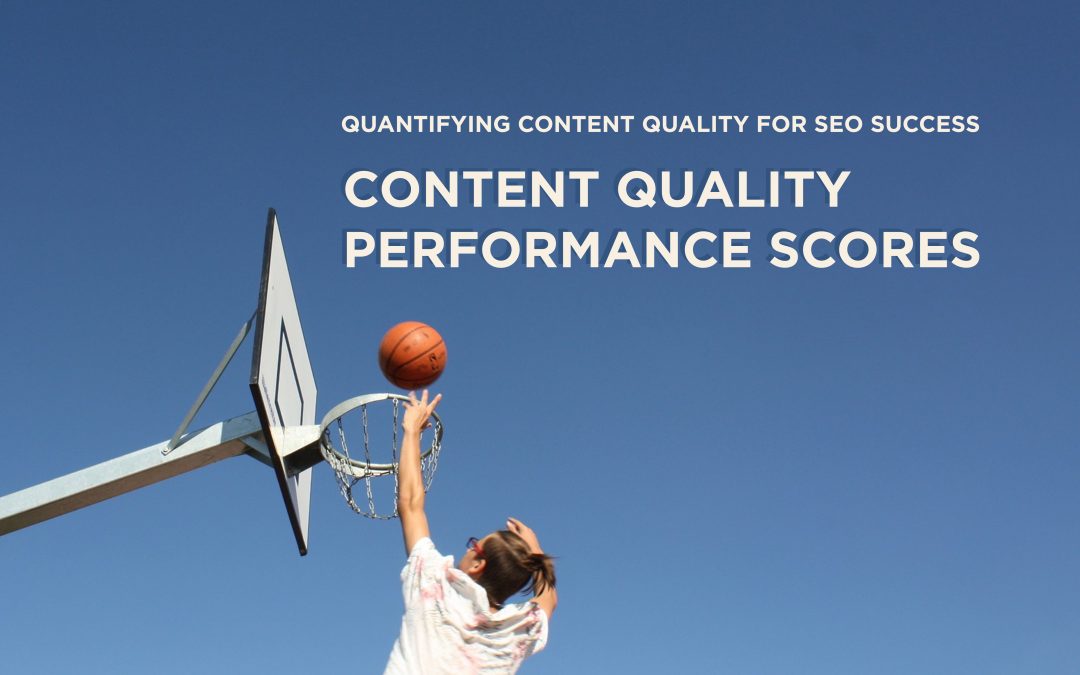iQuanti’s journey on the road to removing subjectivity in creating & measuring content in Enterprise SEO
A tale as old as SEO
While working as a writer for a well-known hospitality brand, my brand marketing team was developing a deal campaign for one of our economy hotel chains. I was asked to write the copy for a landing page – a page to gain some organic interest, and not associated with any pad campaign.
I did a bit of competitive research on my own by navigating the search landscape for the campaign’s keywords. My suggested H1 for the landing page was, “Find a Great Hotel Deal Near You” with supporting copy crafted with an eye towards earning organic traffic.
I met with my new Creative Director and I watched as she read my suggested copy for the first time. A wince, a questioning eye my way before returning to the copy, visible discomfort as she finished her read. “This isn’t what I had in mind,” she told me.
While a novice to the world of organic search and search-engine-optimized copy, she was well versed in the world of retail. After she red-lined my copy, all that remained from my original were a few spare nouns. Her H1? “Best Deals Under the Sun.”
Would it surprise you to learn that her version of the page earned virtually no organic traffic?
Would you believe that even that lack of performance didn’t change her approach to crafting web-page copy?
If only there was a way to test how content will perform before it publishes, I thought, maybe I could convince her.
Would you believe that my new team has the solution to my old problem?
Search Engine Optimization Means Optimizing Content for Your Customers
It is time to move beyond the world of keyword stuffing and black-hat tactics that SEO was originally built upon.
Search engines actually want to provide great answers for their customers’ questions.
As we get closer to defining what “great” means in this context, SEOs begin to realize that great content is almost always a combination of a number of factors that humans regularly care about:
- Is it well written?
- Is it structured in a way for me to scan the page quickly to get to my answer?
- Does it help me get to where I want to go?
- Can I understand it?
- Is it original?
For building great answers it is important for a search practitioner to consider the voice of the customer first and cater to their intent at every funnel stage (Awareness, Consideration, Purchase).
At iQuanti, we aim to build resources that empower our customers by offering engaging, informative, considerate, and dependable content. While we would never want a world where every page is written in a robotic form, we asked ourselves one key question:
- Would it help if there was a way to remove subjectivity from the content process – not only in identifying the right opportunities and creating the right content, but also in measuring the ROI of content efforts?
- Is it possible to “quantify” content efforts & results by developing the right algorithmic scoring models?
And this is exactly what we set out to accomplish with ALPS at iQuanti.
Now, the risk with trying to quantify content quality is that it is very easy to get caught in the numbers game – what is the keyword density? What text to html ratio is optimal? Do I have the ideal word count?
Here is a peek into our journey on the road to quantifying content.
iQuanti’s Content Quality Performance Score
A Prescriptive Approach to Optimizing Content with ALPS
iQuanti’s journey into predictive content forecasting began with ALPS.
ALPS is iQuanti’s patented enterprise SEO platform. ALPS uses proprietary data science and machine learning to build predictive enterprise level SEO roadmaps that deliver stronger ROI.
ALPS identifies keyword themes that a brand’s domain is addressing (regardless of whether they address it well or poorly). By identifying the in-scope keyword themes, ALPS can also compare the performance of the targeted domain against competitors.
This allows ALPS to deliver a set of content gaps, where the domain can either
- improve existing pages to better compete or
- develop new pages of content to reach an existing audience that their competitors are already addressing.
iQuanti’s data scientists and SEOs worked together reverse engineer high-performing pages to better understand how relevance is a key factor in developing successful pages. From that work, they developed a Content Relevance Score, which quantifies how the content elements on a webpage contribute to ranking for a targeted keyword.
iQuanti has discovered that the more relevant your content is to a keyword theme, the better it will perform in search engine rankings (such as Google or Bing).
But if the ALPS tool can quantify how relevant a given page is for a targeted keyword, couldn’t it also predict how relevant a revised page would be for that same keyword?
The ALPS Simulation Tool indeed takes that next step forward, letting you see the Content Relevance Score from one of your existing pages, allowing you to modify that content within the tool (ideally, to enhance its relevance), and seeing how those changes will alter the Content Relevance Score. The ALPS Simulation Tool allows content teams to test updates to their pages and see how those pages will likely perform — before the teams load those changes into a CMS and publish them.
What Factors Beyond Relevance Contribute to High Performing Content?
The way ALPS quantifies the Content Relevance Score is not merely by counting how many times a given keyword appears in the copy. Even more mature semantic models that are leveraged by most SEO tools, such as latent semantic analysis, offer only a generalized correlation between relevance and performance. ALPS relies on cutting-edge lexical algorithms to evaluate content, which is then compared with SERP performance within a topical area to determine the Content Relevance Score.
But is semantic relevance the only way to quantify how content can be scored for performance? At iQuanti, we are working through our hypothesis that there are other attributes of content quality that drive high-performing marketing content in search engines.
In particular, we are working to see how good grammar, active voice and imperative verb usage, highly structured pages, listed format, schema, readability, reading time vs. time on page, depth and expertise of topic, originality, and evergreen content act as content quality factors that correlate with high-ranking organic performance.
Given that these factors can contribute to a site’s perceived expertise, authority, and trust, we would presume that sites that perform well in the search engines will see correlating high scores across these content attributes.
As we evaluate these dimensions of content quality, we expect to find which of these content attributes consistently align with high-performing content so we can begin to build a Content Quality Performance Scoring methodology for any content that is produced with the expectation of high organic performance.
Using iQuanti’s Content Quality Performance Scores to Forecast Content Performance
Evaluating a Content Corpus
Given our capture of content elements and their correlation with search performance ranking (beyond the direct relevance to keywords and their intents), we can apply our method to large bodies of content to evaluate the corpus across each of these factors. In doing so, we can deliver strategies to update your existing digital copy that aim to bolster the strength of these factors and increase signals of authority and relevance while improving user experience and on-page engagement.
We can likewise evaluate competitors to compare your relative performance in the competitive space: allowing your team to identify areas of opportunity while improving your overall content performance.
Forecasting the Performance of Content Updates
After the initial corpal audit, our ALPS Content Optimizer Simulation Tool can now leverage these content quality factors, in addition to relevance. The tool will pull in content directly from your individual pages, where scores for relevance and content quality will be displayed, allowing you to see how those scores compare with
- competitive pages and
- targeted content quality goals.
The Simulation Tool then allows your authors to update the content from the page within the tool. When changes are ready to be scored, a simple button restores the content based on the updated text, providing you with a pre- and post-update score.
These scores not only allow you to ensure that your content updates are driving improvements across these factors and in SERP, but it also acts as a feedback tool for your writers, so they can test what type of content updates have a direct effect on elements of content quality. With greater usage of the tools, we have found content creators and writers to be more cognizant of these content quality factors — both as they move through the exercise of updating existing pages in your corpus and as they begin to develop new pages of content.
Most significantly, the tool gives content teams confidence that their changes will have a positive effect on the future search engine performance of your pages. Rather than relying on the vagaries that often cement decisions for creative execution, our tool is built to rely on existing correlations between quality and performance to drive creative development.
The Final Word
With iQuanti’s Content Quality Performance Score, our objective has been to assist enterprises in delivering that customer-centric content and to help content creators better understand the qualities that consistently define great content online.
It is time to begin quantifying quality, and iQuanti is ready to deliver your team’s score.
Patrick Snajder (Senior Director, Content) is a highly experienced content strategist & marketer with 25+ years of proven success leading multi channel content programs for large enterprises, across industries. Reach out to Patrick with questions/comments here or request a free ALPS demo here.




